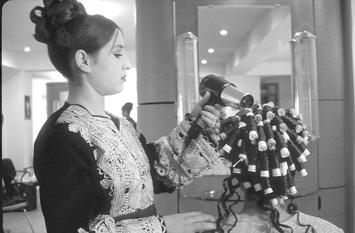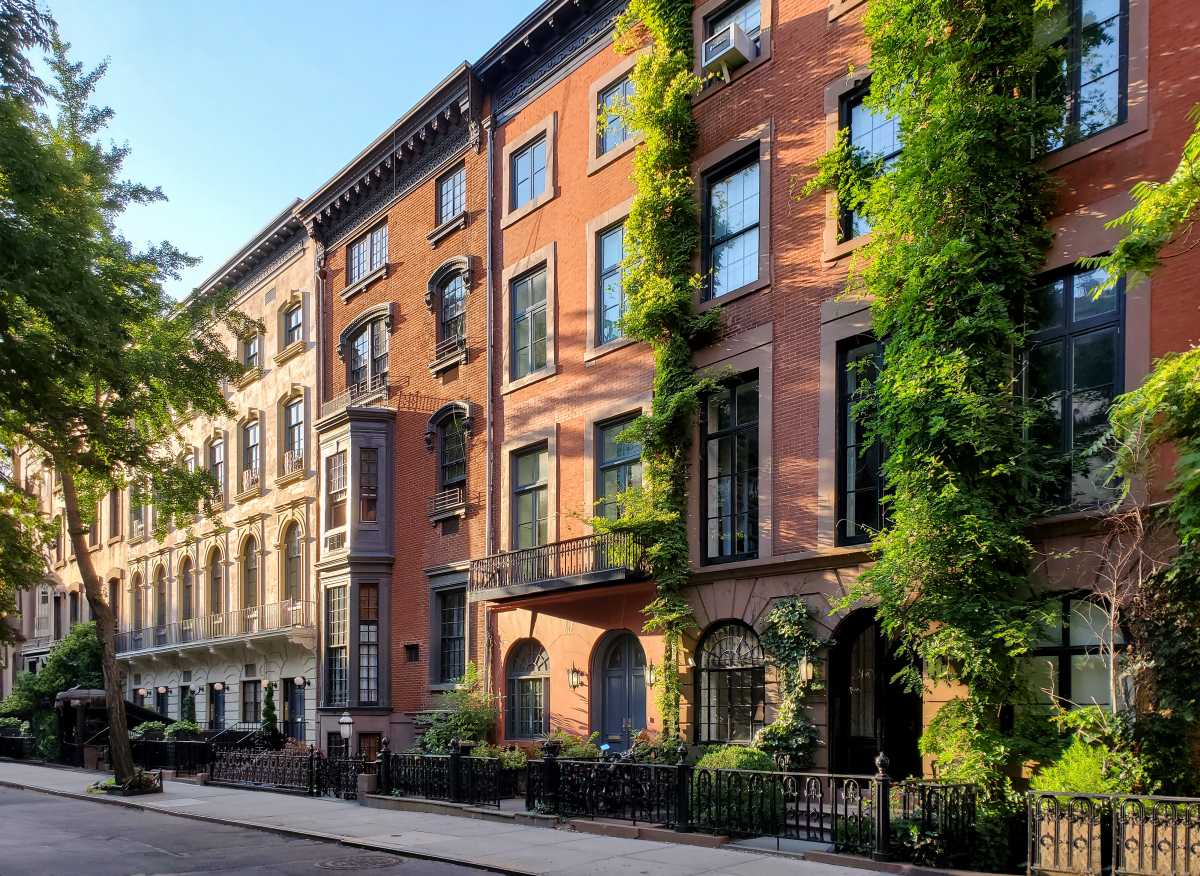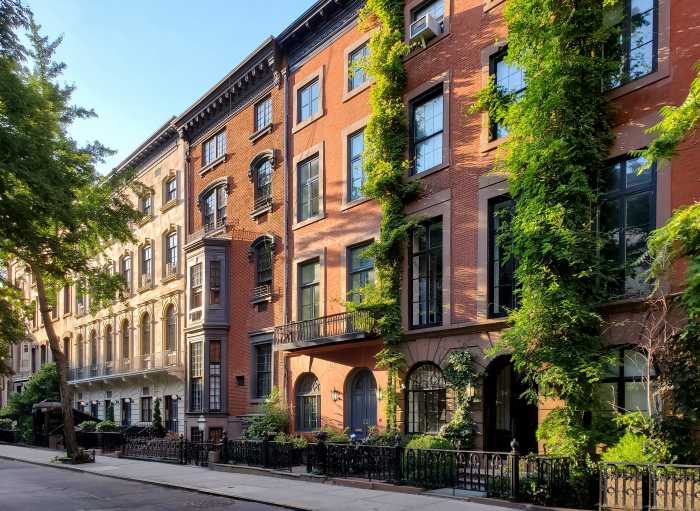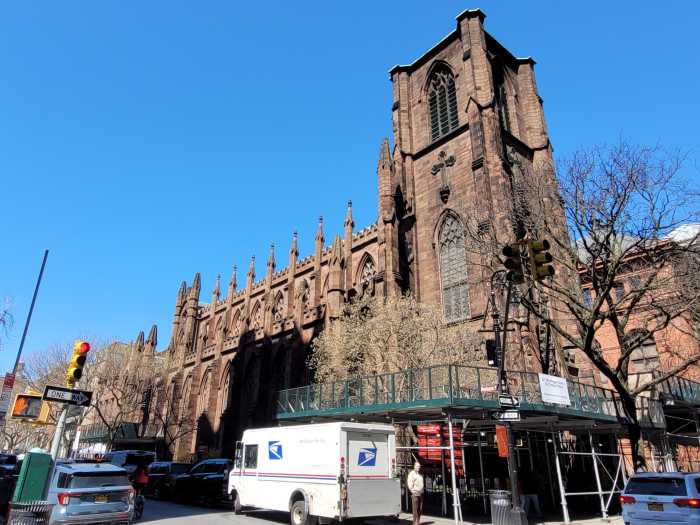By Judith Stiles
Hairdos and makeup help define a woman’s persona, but at a beauty school in Kabul after the fall of the Taliban, each stroke of red lipstick and each snip of the scissors boldly punctuated a newfound freedom for women in Afghanistan. The school could not exist under the Taliban’s iron fist— makeup and hairstyling were outlawed, forcing beauty salons to go underground and operate in secret—but in 2003, New York City filmmaker Liz Mermin spotted an obscure article in a newspaper describing how American beauticians were heading over to Kabul to open a beauty academy after the Taliban was ousted. Thus began her own journey of discovery with the making of the documentary, “The Beauty Academy of Kabul,” where perms and blush are metaphors for freedom. The film is a 70-minute heartfelt reflection that tenderly touches on the horrendous oppression women had to endure, and their resilient comeback from bombs, rubble, and the portable prison of the burka. It’s now playing at the Angelika and Lincoln Plaza Cinemas.
Recently, wearing no makeup or products in her free-flowing hair, Ms. Mermin sipped coffee in her favorite neighborhood café in Chelsea as she humbly described her approach to making this documentary. She explained that is not her style to hammer the audience over the head with her own p.o.v. or narrative voiceovers. Rather, she simply uses film as a tool to illuminate cultural phenomena. This instinct was born out of her background in anthropology and her studies in the Program in Culture and Media at NYU. Its shows in “Beauty Academy,” which she used hours of tape to quilt together key statements made by Afghan women that show how this horrific war impacted ordinary people. The result is an astonishingly different story from the one we saw filtered through the prism of CNN.
At a post-screening forum at the Angelika Theater, Ms. Mermin answered tough questions along with fellow panelists Vina Nadjibulls from the United Nations Development Fund for Women, and Matthew Kennis from Amnesty International. “Why make a film about beauty schools when there are more important topics such as soaring domestic violence, frequent death in childbirth, and increased suicide in Afghanistan?” asked a prickly audience member. Ms. Nadjibulls answered that focusing on this topic in no way diminishes the seriousness of other problems, but here was a chance to shine a spotlight on a very positive entrepreneurial project initiated by women, which in its own way is an important expression of freedom.
Mulling over the controversy about the status of the beauty academy today,
Ms. Mermin clarified that statements made on the Leonard Lopate show on NPR radio, accusing the founders of absconding with funds, are simply unsubstantiated. She added that it is most important to note that teaching women how to jumpstart their own beauty businesses actively continues in Kabul today. Debbie, a feisty American hairdresser from the academy, actually married a well-to-do Afghan businessman and carries on the program, which she cheekily described in the film as “Beauty Without Borders.”
In reminiscing about living in Kabul, Ms. Mermin warmly remarked that the Afghan people were very friendly and hospitable to her crew everywhere they went. One day on a break from filming, she tried on a burka to accommodate an American photographer who could not get a single local woman to pose for him. Ms. Mermin confirmed that it was cumbersome, sweltering hot, but the worst part was the lack of peripheral vision, which made it difficult to see—and not just the immediate scene, but the world around her. Today in Afghanistan, the burkas have come off, many of them burned in anger, and fortunately a brief glimpse into the lives of Afghan women has been thoughtfully recorded in this documentary, rather then being swept under the prayer rug.
For information on theater screenings; www.beautyacademyofkabul.com.































